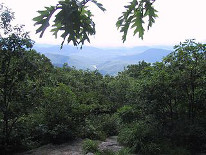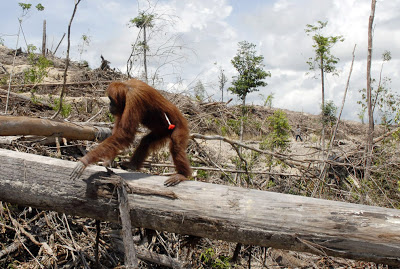Conservation initiative in Latin America

This month, at the United Nations Climate Change Conference in Lima, Peru, one of the most important battles facing humanity is playing out. At stake: the salvation of the planet. Climate change is already being felt across Latin America and the Caribbean, the World Bank says.
Rising temperatures are changing rainfall patterns, leading to flooding in some places and intense droughts in others. Climate change will mean dry places get drier and wet places get wetter.
Indigenous beliefs, structured by a sound relationship with the environment, are the world over, but unlike in North America, Australia or Europe. They have not been so successfully suppressed in many parts of Latin America, but in some places they are making a resurgence. People living on the slopes of the Andes Mountains, as well as their livestock, are suffering from health problems because the sources of fresh water are diminishing.
Argentina, Colombia, Chile, Costa Rica, Ecuador, Guatemala, Mexico and Peru and two regional conservationist programs joined the 20x20 Initiative that aims to have all the planned work of re-vegetation 20 million hectares of land well under way by 2020. The initiative aims to change the dynamics of land restoration in the region and initially focuses on bringing 20 million hectares of degraded land into restoration by 2020. The land will be restored partly into natural forests and partly into a “mosaic” of trees, crops, and livestock.
SMH: Latin Americal countries fight climate change
Greenhouse gas emissions from land use changes, such as deforestation, account for 15 per cent of global emissions, or more than what is generated by the world's transport sector. So, programs to avoid destruction of forests help to reduce the amount of heat-trapping gases.
 (A main cause of deforestation in South America and Asia has been clearing land for palm oil production. Palm oil has become a major source of biodiesel, a supposedly green fuel - from Blogspot: now can the world have its forests back? )
(A main cause of deforestation in South America and Asia has been clearing land for palm oil production. Palm oil has become a major source of biodiesel, a supposedly green fuel - from Blogspot: now can the world have its forests back? )
The response of the Bolivarian Alliance for the Peoples of Our America (ALBA) was: for the rich nations to reverse the impact they had made, they must implement carbon emissions reductions of 25 to 40 percent below 1990 levels by 2020. They should shoulder costs of developing countries for mitigation actions, and provide finance and technological help to help developing nations deal with the effects of climate change.
Peru’s intention to show leadership later this year is part of a growing trend where Latin American countries are perceived to be punching above their weight when it comes to participating in global debates and forums on climate change action.
The 20x20 Initiative, which also aims to incorporate more countries of the region into the project, also seeks to tackle the carbon emissions through the protection of forests and fertile lands. UN Under-Secretary-General and UNEP Executive Director Achim Steiner said, "Today's pledges by countries in Africa and Latin America to combat deforestation and more than double restoration targets will bring significant climate benefits..."
“Land restoration in the region is an essential element to promote equity, poverty reduction, alternatives for development in poor rural areas as well as a mechanism to achieve a low carbon, more resilient future,” said Gabriel Vallejo, Colombia's Minister of Environment, in a statement.." - See more at: http://news.mongabay.com/2014/1207-initiative20x20.html#sthash.rTmKsh5D.Aq8Qlqlk.dpuf
Livestock industries
The global livestock industry produces more greenhouse gas emissions than transport and of the 95 million tons of beef produced in the world in 2000, the vast majority came from cattle in Latin America, Europe and North America.
The World Resources Institute in Washington estimates that converting land to farms and using it for agriculture and livestock accounts for almost half of all greenhouse gas emissions in the region. Degraded land can be restored by adding trees to properties that are currently used for farming or raising livestock, and over the long term, the trees themselves can be sustainably harvested to provide additional income to farmers.
The Green Revolution relied on the intensive use of water and fossil-fuel-based chemicals, giving the world a 40 year reprieve of food security, but we can no longer afford to increase food production through agricultural expansion. Trading tropical forest for farmland is one of the most destructive things we do to the environment.
Governments and environmental groups are reluctant to pursue policies or campaigns to change consumer behaviour due to fears of a consumer backlash. International think-tank, Chatham House , found that consumers with a higher level of awareness of climate change and its impacts were more willing to reduce their dietary behaviour. The greatest potential for behaviour change appears to lie in emerging economies, with respondents in Brazil, China and India showing a greater consideration of climate change when choosing meat and dairy, and a greater willingness to modify their behaviour than consumers in the United States, the UK and Japan.
Developing nations can make headway, and make a pro-active response to environmental repairs and a reduction to greenhouse gas emissions, but in contrast, Australia is going backwards.
Australia's refusal to participate on climate change initiatives
The Brisbane G20 summit yielded major pledges to the Green Climate Fund by the US (US$3 billion) and Japan (US$1.5 billion). Combined with earlier pledges by France, Germany and others, the fund is now three-quarters of the way towards reaching its initial funding target of US$10 billion by the time of a pledging.
Australia stands as the only wealthy country to have ruled out a contribution to the United Nations’ Green Climate Fund. As of last week, the fund had received pledges from 22 countries totalling $US9.6 billion ($A11.2 billion) against an initial funding target of $US10 billion.
The Abbott government's refusal to contribute to the $US10 billion ($11.8 billion) Green Climate Fund risked Australia "being marginalised", Erwin Jackson, deputy chief executive of The Climate Institute said Australia remains one of the few rich nations not to make a pledge to the UN fund. Even Canada, led by climate sceptic Stephen Harper, has pledged $C300 million ($311 million).
Australia will continue to directly pay for climate change adaptation in vulnerable South Pacific island nations through its aid budget rather than donate to a UN Green Climate Fund. Scientists say much sharper emissions cuts are needed in coming decades to keep global warming within 2 degrees C of pre-industrial times, the overall goal of the UN talks.
With heavy investments in population growth, and growth in livestock industries and exports, Australia is locked into high emissions and climate change denial.
Last year our Treasurer announced cuts of $213m to the Biodiversity Fund and $144m to the Carbon Farming Initiative, and native vegetation is in nation-wide decline.






Recent comments